If you’re eager to buy a home but can’t quite afford that 20% down payment, it might be tempting to purchase private mortgage insurance (PMI). PMI is the only option for some homebuyers, but for others, it is a choice. Today we’re going to look at why and how you should avoid paying PMI.
What Is Private Mortgage Insurance?
PMI protects the mortgage lender if you (the borrower) default on your loan. You are allowed to purchase a mortgage without that 20% down payment, but in return, you will have to pay the lender a premium in addition to your regular mortgage payments. For some homebuyers, this is a useful plan that will allow them to buy a home without saving up a hefty down payment, but for most, the disadvantages of PMI far outweigh the benefits.
Why You Should Avoid Paying PMI
First of all, PMI is expensive. Generally, it will cost 0.5-1% of your loan amount annually, though this varies depending on the size of your mortgage and down payment. So if your loan is above $100,000, you could be paying over $1,000 a year just in PMI premiums (that’s at a 12 percent PMI rate). With the average home price over $200,000, you might end up paying almost $200 a month just for your PMI.
Second, you are required to continue paying your PMI until you’ve reached 20% equity in the home. This could take years. Your money can be put to better use, whether it’s invested or saved for a special goal. With a PMI, the lender is the sole beneficiary, so it can feel like you’re just giving your money away.
Third, it is not always tax deductible. If your income is over a certain threshold, the income cap on mortgage interest tax deduction will prevent you from qualifying. A married taxpayer must earn less than $110,000 per year (adjusted gross income) and married couples filing separately must earn less than $55,000.
Fourth, they can be a pain to cancel. You don’t simply stop sending payments when you’ve reached the 20% equity mark. Many lenders require you to send a letter to request that the PMI be canceled. This is followed by a formal appraisal of the home prior to its cancellation, which could take some time. Depending on your lenders, canceling a PMI can be very inconvenient.
Fifth and finally, although they have to cancel PMI when their home equity reaches 20 percent (i.e., when the loan amount is paid down to 80 percent of its original value), lenders are allowed to require a 50% equity for high-risk borrowers. So if you have poor credit history, an unstable income, or a high debt-to-income ratio, you could be paying for PMI a lot longer.
How to Avoid Paying PMI
If you want to avoid paying PMI, you should consider paying a higher interest rate. A higher interest rate on your mortgage is generally more beneficial than having PMI because, in a way, this means that the lender will be buying PMI. Your increased interest repays their cost. And because your mortgage interest is tax deductible, you should be able to save money this way. However, before you agree to that higher interest rate, look carefully at the numbers to check that this plan does, in fact, benefit you. That higher interest rate will be kept for the entirety of your mortgage while a PMI will disappear once you reach the required equity. Depending on the costs, a higher interest rate might not be advantageous.
Another option is purchasing a second mortgage. You could have one mortgage for 80% of the purchase price, another for 10%, and pay a 10% down payment. Or, you could have one mortgage for 80%, another for 15%, and pay just a 5% down payment. You will be paying a higher interest rate, but the cost of your two monthly mortgage payments will probably still be lower than a PMI premium. Plus, it’s tax deductible.
So now it’s up to you! Pull out that calculator, start making notes, and figure out whether you can avoid paying PMI or whether it really is in your best interest. For families who itemize their deductions and earn less than $110,000 a year, PMI could be a great option. Everyone’s financial situation is unique, so it’s important that you do your homework or talk to a trusted advisor to figure out what would be best for you and your family.

